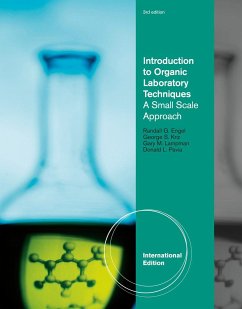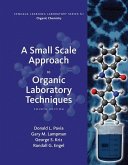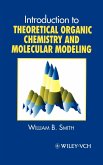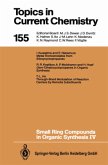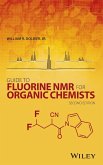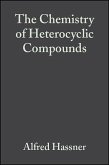Donald Pavia, George Kriz, Randall Engel
Introduction to Organic Laboratory Techniques: A Small-Scale Approach
Mitwirkender: Engel, Randall G.; Lampman, Gary M.; Kriz, George S.
Donald Pavia, George Kriz, Randall Engel
Introduction to Organic Laboratory Techniques: A Small-Scale Approach
Mitwirkender: Engel, Randall G.; Lampman, Gary M.; Kriz, George S.
- Broschiertes Buch
- Merkliste
- Auf die Merkliste
- Bewerten Bewerten
- Teilen
- Produkt teilen
- Produkterinnerung
- Produkterinnerung
Featuring new experiments, a new essay, and new coverage of nanotechnology, this organic chemistry laboratory textbook offers a comprehensive treatment of laboratory techniques including small scale and some microscale methods that use standard-scale ("macroscale") glassware and equipment. The book is organized based on essays and topics of current interest and covers a large number of traditional organic reactions and syntheses, as well as experiments with a biological or health science focus. Seven introductory technique-based experiments, thirteen project-based experiments, and sections on…mehr
Andere Kunden interessierten sich auch für
![A Small Scale Approach to Organic Laboratory Techniques A Small Scale Approach to Organic Laboratory Techniques]() Donald L PaviaA Small Scale Approach to Organic Laboratory Techniques165,99 €
Donald L PaviaA Small Scale Approach to Organic Laboratory Techniques165,99 €![Introduction to Theoretical Organic Chemistry and Molecular Modelling Introduction to Theoretical Organic Chemistry and Molecular Modelling]() William B. SmithIntroduction to Theoretical Organic Chemistry and Molecular Modelling212,99 €
William B. SmithIntroduction to Theoretical Organic Chemistry and Molecular Modelling212,99 €![Small Ring Heterocycles, Volume 42, Part 2 Small Ring Heterocycles, Volume 42, Part 2]() Small Ring Heterocycles, Volume 42, Part 2615,99 €
Small Ring Heterocycles, Volume 42, Part 2615,99 €![Small Ring Heterocycles, Volume 42, Part 1 Small Ring Heterocycles, Volume 42, Part 1]() Small Ring Heterocycles, Volume 42, Part 1615,99 €
Small Ring Heterocycles, Volume 42, Part 1615,99 €![Small Ring Compounds in Organic Synthesis IV Small Ring Compounds in Organic Synthesis IV]() Small Ring Compounds in Organic Synthesis IV39,99 €
Small Ring Compounds in Organic Synthesis IV39,99 €![Guide to Fluorine NMR for Organic Chemists Guide to Fluorine NMR for Organic Chemists]() William R. DolbierGuide to Fluorine NMR for Organic Chemists135,99 €
William R. DolbierGuide to Fluorine NMR for Organic Chemists135,99 €![Small Ring Heterocycles, Volume 42, Part 3 Small Ring Heterocycles, Volume 42, Part 3]() Small Ring Heterocycles, Volume 42, Part 3665,99 €
Small Ring Heterocycles, Volume 42, Part 3665,99 €-
-
-
Featuring new experiments, a new essay, and new coverage of nanotechnology, this organic chemistry laboratory textbook offers a comprehensive treatment of laboratory techniques including small scale and some microscale methods that use standard-scale ("macroscale") glassware and equipment. The book is organized based on essays and topics of current interest and covers a large number of traditional organic reactions and syntheses, as well as experiments with a biological or health science focus. Seven introductory technique-based experiments, thirteen project-based experiments, and sections on green chemistry and biofuels spark students' interest and engage them in the learning process. Instructors may choose to offer Cengage Learning's optional Premium Website, which contains videos on basic organic laboratory techniques.
Produktdetails
- Produktdetails
- Verlag: Brooks/Cole / Cengage Learning EMEA
- Revised
- Seitenzahl: 1006
- Erscheinungstermin: Mai 2010
- Englisch
- Abmessung: 483mm x 483mm x 635mm
- Gewicht: 1844g
- ISBN-13: 9780538733281
- ISBN-10: 0538733284
- Artikelnr.: 29006873
- Verlag: Brooks/Cole / Cengage Learning EMEA
- Revised
- Seitenzahl: 1006
- Erscheinungstermin: Mai 2010
- Englisch
- Abmessung: 483mm x 483mm x 635mm
- Gewicht: 1844g
- ISBN-13: 9780538733281
- ISBN-10: 0538733284
- Artikelnr.: 29006873
Donald L. Pavia earned his BS degree in chemistry from Reed College and his PhD in organic chemistry from Yale University. In 1970, he joined the faculty at Western Washington University as Assistant Professor and now holds the rank of Professor Emeritus. He is the coauthor of two organic laboratory books that include techniques and experiments: INTRODUCTION TO ORGANIC LABORATORY TECHNIQUES: A MICROSCALE APPROACH (Cengage Learning), and A SMALL SCALE APPROACH TO ORGANIC LABORATORY TECHNIQUES (Cengage Learning), as well as MICROSCALE AND MACROSCALE TECHNIQUES IN THE ORGANIC LABORATORY (Cengage Learning), which highlights techniques to be used with a faculty member's own experiments. He is a co-author, with Gary M. Lampman, George S. Kriz and James R. Vyvyan of an organic spectroscopy book, INTRODUCTION TO SPECTROSCOPY (Cengage Learning). Professor Pavia's research interests center on the synthesis and reactions of valence tautomeric and photochromic compounds, especially pyrylium-3
-oxide tautomers. Autoxidations are a special interest. His other interests include the use of computers in teaching organic chemistry, both for lecture presentation and for the simulation of laboratories. He is the author of several computer programs. One such program is SQUALOR (Simulated Qualitative Organic Analysis) for which he won the 1986 EDUCOM/NCRIPTAL award. The program is designed for teaching the methods for solving organic unknowns.
Randall G. Engel has taught chemistry for almost 35 years. He has co-authored with Donald Pavia, Gary Lampman, and George Kriz INTRODUCTION TO ORGANIC LABORATORY TECHNIQUES: A MICROSCALE APPROACH (Cengage Learning), and A SMALL SCALE INTRODUCTION TO ORGANIC LABORATORY TECHNIQUES (Cengage Learning). Their book, MICROSCALE AND MACROSCALE TECHNIQUES IN THE ORGANIC LABORATORY (Cengage Learning), includes techniques only, and can be used with a faculty member's own experiments. Engel received his B.A. degree in chemistry from Cornell College and his M.S. degree in chemistry from Western Washington University. He began his teaching career at Wenatchee Valley College in 1975 and continued at Green River Community College and Edmonds Community College. Presently he teaches organic chemistry on a part-time basis at North Seattle Community College.
-oxide tautomers. Autoxidations are a special interest. His other interests include the use of computers in teaching organic chemistry, both for lecture presentation and for the simulation of laboratories. He is the author of several computer programs. One such program is SQUALOR (Simulated Qualitative Organic Analysis) for which he won the 1986 EDUCOM/NCRIPTAL award. The program is designed for teaching the methods for solving organic unknowns.
Randall G. Engel has taught chemistry for almost 35 years. He has co-authored with Donald Pavia, Gary Lampman, and George Kriz INTRODUCTION TO ORGANIC LABORATORY TECHNIQUES: A MICROSCALE APPROACH (Cengage Learning), and A SMALL SCALE INTRODUCTION TO ORGANIC LABORATORY TECHNIQUES (Cengage Learning). Their book, MICROSCALE AND MACROSCALE TECHNIQUES IN THE ORGANIC LABORATORY (Cengage Learning), includes techniques only, and can be used with a faculty member's own experiments. Engel received his B.A. degree in chemistry from Cornell College and his M.S. degree in chemistry from Western Washington University. He began his teaching career at Wenatchee Valley College in 1975 and continued at Green River Community College and Edmonds Community College. Presently he teaches organic chemistry on a part-time basis at North Seattle Community College.
Introduction.WELCOME TO ORGANIC CHEMISTRY.Laboratory Safety. Organization of the Textbook. Advance Preparation. Budgeting Time. Purpose.Part One: The Techniques.Technique 1: Laboratory Safety.Technique 2: The Laboratory Notebook, Calculations, and Laboratory Records.Technique 3: Laboratory Glassware: Care and Cleaning.Technique 4: How to Find Data for Compounds: Handbooks and Catalogs.Technique 5: Measurement of Volume and Weight.Technique 6: Heating and Cooling Methods.Technique 7: Reaction Methods.Technique 8: Filtration.Technique 9: Physical Constants of Solids: The Melting Point.Technique 10: Solubility.Technique 11: Crystallization: Purification of Solids.Technique 12: Extractions, Separations, and Drying Agents.Technique 13: Physical Constants of Liquids: The Boiling Point and Density.Technique 14: Simple Distillation.Technique 15: Fractional Distillation, Azeotropes.Technique 16: Vacuum Distillation, Manometers.Technique 17: Sublimation.Technique 18: Steam Distillation.Technique 19: Column Chromatography.Technique 20: Thin-Layer Chromatography.Technique 21: High-Performance Liquid Chromatography (HPLC).Technique 22: Gas Chromatography.Technique 23: Polarimetry.Technique 24: Refractometry.Technique 25: Infrared Spectroscopy.Technique 26: Nuclear Magnetic Resonance Spectroscopy (Proton NMR).Technique 27: Carbon-13 Nuclear Magnetic Resonance Spectroscopy.Technique 28: 6 Mass Spectrometry.Technique 29: Guide to the Chemical Literature.Part Two: Introduction to Basic Laboratory Techniques.Experiment 1: Solubility.Experiment 2: Crystallization.Experiment 3: Extraction.Experiment 4: A Separation and Purification Scheme.Experiment 4A: Extractions with a Separatory Funnel.Experiment 5: Chromatography.Experiment 5A: Thin-Layer Chromatography.Experiment 5B: Selecting the Correct Solvent for Thin-Layer Chromatography.Experiment 5C: Monitoring a Reaction with Thin Layer Chromatography.Experiment 5D: Column Chromatography.Experiment 6: Simple and Fractional Distillation.Experiment 7: Infrared Spectroscopy and Boiling-Point Determination.Experiment 8: Acetylsalicylic Acid.Experiment 9: Acetaminophen.Experiment 10: TLC Analysis of Analgesic Drugs.Experiment 11: Isolation of Caffeine.Experiment 11A: Extraction of Caffeine from Tea.Experiment 11B: Isolation of Caffeine from a Tea Bag.Experiment 12: Isopentyl Acetate (Banana Oil).Experiment 13: Isolation of Eugenol from Cloves.Experiment 14: Spearmint and Caraway Oil: (+)- and (-)-Carvones.Experiment 15: Isolation of Chlorophyll and Carotenoid Pigments from Spinach.Experiment 16: Ethanol from Sucrose.Part Three: Introduction to Molecular Modeling.Experiment 17: An Introduction to Molecular Modeling.Experiment 17A: The Conformations of n-Butane: Local Minima.Experiment 17B: Cyclohexane Chair and Boat Conformations.Experiment 17C: Substituted Cyclohexane Rings (Critical Thinking Exercise).Experiment 17D: cis- and trans-2-Butene.Experiment 18: Computational Chemistry.Experiment 18A: Heats of Formation: Isomerism, Tautomerism, and Regioselectivity.Experiment 18B: Heats of Reaction: SN1 Reaction Rates.Experiment 18C: Density Electrostatic Potential Maps: Acidities of Carboxylic Acids.Experiment 18D: Density Electrostatic Potential Maps: Carbocations.Experiment 18E: Density LUMO Maps: Reactivities of Carbonyl Groups.Part Four: Preparations and Reactions of Organic Compounds.Experiment 19: Reactivities of Some Alkyl Halides.Experiment 20: Nucleophilic Substitution Reactions: Competing Nucleophiles.Experiment 20A: Competitive Nucleophiles with 1-Butanol or 2-Butanol.Experiment 20B: Competitive Nucleophiles with 2-Methyl-2-Propanol.Experiment 20C: Analysis.Experiment 21: Synthesis of n-Butyl Bromide and t-Pentyl Chloride.Experiment 21A: n-Butyl Bromide.Experiment 21B: t-Pentyl Chloride.Experiment 22: 4-Methylcyclohexene.Experiment 23: Methyl Stearate from Methyl Oleate.Experiment 24: Gas-Chromatographic Analysis of Gasolines.Experiment 25: Biodiesel.Experiment 25A: Biodiesel from Coconut Oil.Experiment 25B: Biodiesel from Other Oils.Experiment 25C: Analysis of Biodiesel.Experiment 26: Ethanol from Corn.Experiment 27: Chiral Reduction of Ethyl Acetoacetate; Optical Purity Determination.Experiment 27A: Chiral Reduction of Ethyl Acetoacetate.Experiment 27B: NMR Determination of the Optical Purity of Ethyl (S)-3-Hydroxybutanoate.Experiment 28: Nitration of Aromatic Compounds Using a Recyclable Catalyst.Experiment 29: Reduction of Ketones Using Carrots as Biological Reducing Agents.Experiment 30: Resolution of ( )-a-Phenylethylamine and Determination of Optical Purity.Experiment 30A: Resolution of ( )-a-Phenylethylamine.Experiment 30B: Determination of Optical Purity Using NMR and a Chiral Resolving Agent.Experiment 31: An Oxidation-Reduction Scheme: Borneol, Camphor, Isoborneol.Experiment 32: Multistep Reaction Sequences: The Conversion of Benzaldehyde to Benzilic Acid.Experiment 32A: Preparation of Benzoin by Thiamine Catalysis.Experiment 32B: Preparation of Benzil.Experiment 32C: Preparation of Benzilic Acid.Experiment 33: Triphenylmethanol and Benzoic Acid.Experiment 33A: Triphenylmethanol.Experiment 33B: Benzoic Acid.Experiment 34: Aqueous-Based Organozinc Reactions.Experiment 35: Sonogashira Coupling of Iodosubstituted Aromatic Compounds with Alkynes using a Palladium Catalyst.Experiment 36: Grubbs Catalyzed Metathesis of Eugenol with 1,4-Butenediol to Prepare a Natural Product.Experiment 37: The Aldol Condensation Reaction: Preparation of Benzalacetophenones (Chalcones).Experiment 38: A Green Enantioselective Aldol Condensation Reaction.Experiment 39: Preparation of an a,b-Unsaturated Ketone via Michael and Aldol Condensation Reactions.Experiment 40: Preparation of Triphenylpyridine.Experiment 41: 1,4-Diphenyl-1,3-Butadiene.Experiment 42: Relative Reactivities of Several Aromatic Compounds.Experiment 43: Nitration of Methyl Benzoate.Experiment 44: Benzocaine.Experiment 45: N,N-Diethyl-m-toluamide: The Insect Repellent OFF".Experiment 46: Sulfa Drugs: Preparation of Sulfanilamide.Experiment 47: Preparation and Properties of Polymers: Polyester, Nylon, and Polystyrene.Experiment 49A: Polyesters.Experiment 49B: Polyamide (Nylon).Experiment 49C: Polystyrene.Experiment 49D: Infrared Spectra of Polymer Samples.Experiment 48: Ring-Opening Metathesis Polymerization (ROMP) Using a Grubbs Catalyst: A Three-Step Synthesis of a Polymer.Experiment 48A: Diels-Alder Reaction of Furan and Maleic Anhydride.Experiment 48B: Ring Opening of Anhydride in Methanol.Experiment 48C: Ring-Opening Metathesis Polymerization (ROMP).Experiment 48A: Diels-Adler Reaction.Experiment 48B: Conversion of the Diels-Adler Adduct to the Diester.Experiment 48C: Synthesizing the Polymer by Ring-Opening Metathesis Polymerization (ROMP).Experiment 49: The Diels Alder Reaction of Cyclopentadiene with Maleic Anhydride.Experiment 50: Diels-Alder Reaction with Anthracene-9-methanol.Experiment 51: Photoreduction of Benzophenone and Rearrangement of Benzpinacol to Benzopinacolone.Experiment 51A: Photoreduction of Benzophenone.Experiment 51B: Synthesis of b-Benzpinacolone: The Acid-Catalyzed Rearrangement of Benzpinacol.Experiment 52: Luminol.Experiment 53: Analysis of A Diet Soft Drink by HPLC.Experiment 54: Carbohydrates.Part Four: Identification of Organic Substances.Experiment 55: Identification of Unknowns.Experiment 55A: Solubility Tests.Experiment 55B: Tests of the Elements (N, S, X).Experiment 55C: Tests for Unsaturation.Experiment 55D: Aldehydes and Ketones.Experiment 55E: Carboxylic Acids.Experiment 55F: Phenols.Experiment 55G: Amines.Experiment 55H: Alcohols.Experiment 55I: Esters.Part Six: Project-Based Experiments.Experiment 56: Preparation of a C-4 or C-5 Acetate Ester.Experiment 57: Isolation of Essential Oils from Allspice, Caraway, Cinnamon, Cloves, Cumin, Fennel, or Star Anise.Experiment 57A: Isolation of Essential Oils by Steam Distillation.Experiment 57B: Identification of the Constituents of Essential Oils by Gas Chromatography Mass Spectrometry.Experiment 57C: Investigation of the Essential Oils of Herbs and Spices A Mini-Research Project.Experiment 58: Competing Nucleophiles in SN1 and SN2 Reactions: Investigations Using 2-Pentanol and 3-Pentanol.Experiment 59: Friedel Crafts Acylation.Experiment 60: The Analysis of Antihistamine Drugs by Gas Chromatography Mass Spectrometry.Experiment 61: Carbonation of an Unknown Aromatic Halide.Experiment 62 The Aldehyde Enigma.Experiment 63 Synthesis of Substituted Chalcones: A Guided-Inquiry Experience.Experiment 64: Green Epoxidation of Chalcones.Experiment 65: Cyclopropanation Reactions on Chalcones.Experiment 66: Michael and Aldol Condensation Reactions.Experiment 67: Esterification Reactions of Vanillin: The Use of NMR to Determine at Structure.Experiment 68: An Oxidation Puzzle.Part Seven: Essays.Essay 1: Aspirin.Essay 2: Analgesics.Essay 3: Identification of Drugs.Essay 4: Caffeine.Essay 5: Esters Flavors and Fragrances.Essay 6: Terpenes and Phenylpropanoids.Essay 7: Stereochemical Theory of Odor.Essay 8: The Chemistry of Vision.Essay 9: Ethanol and Fermentation Chemistry.Essay 10: Molecular Modeling and Molecular Mechanics.Essay 11: Computational Chemistry ab Intio and Semiempirical Methods.Essay 12: Fats and Oils.Essay 13: Petroleum and Fossil Fuels.Essay 14: Biofuels.Essay 15: Green Chemistry.Essay 16: Local Anesthetics.Essay 17: Pheromones: Insect Attractants.Essay 18: Sulfa Drugs.Essay 19: Polymers and Plastics.Essay 20: Diels-Alder Reaction and Insecticides.Essay 21: Fireflies and Photochemistry.Essay 22: The Chemistry of Sweeteners.Appendices.Appendix 1: Tables of Unknowns and Derivatives.Appendix 2: Procedures for Preparing Derivatives.Appendix 3 Index of Spectra."
Introduction.WELCOME TO ORGANIC CHEMISTRY.Laboratory Safety. Organization of the Textbook. Advance Preparation. Budgeting Time. Purpose.Part One: The Techniques.Technique 1: Laboratory Safety.Technique 2: The Laboratory Notebook, Calculations, and Laboratory Records.Technique 3: Laboratory Glassware: Care and Cleaning.Technique 4: How to Find Data for Compounds: Handbooks and Catalogs.Technique 5: Measurement of Volume and Weight.Technique 6: Heating and Cooling Methods.Technique 7: Reaction Methods.Technique 8: Filtration.Technique 9: Physical Constants of Solids: The Melting Point.Technique 10: Solubility.Technique 11: Crystallization: Purification of Solids.Technique 12: Extractions, Separations, and Drying Agents.Technique 13: Physical Constants of Liquids: The Boiling Point and Density.Technique 14: Simple Distillation.Technique 15: Fractional Distillation, Azeotropes.Technique 16: Vacuum Distillation, Manometers.Technique 17: Sublimation.Technique 18: Steam Distillation.Technique 19: Column Chromatography.Technique 20: Thin-Layer Chromatography.Technique 21: High-Performance Liquid Chromatography (HPLC).Technique 22: Gas Chromatography.Technique 23: Polarimetry.Technique 24: Refractometry.Technique 25: Infrared Spectroscopy.Technique 26: Nuclear Magnetic Resonance Spectroscopy (Proton NMR).Technique 27: Carbon-13 Nuclear Magnetic Resonance Spectroscopy.Technique 28: 6 Mass Spectrometry.Technique 29: Guide to the Chemical Literature.Part Two: Introduction to Basic Laboratory Techniques.Experiment 1: Solubility.Experiment 2: Crystallization.Experiment 3: Extraction.Experiment 4: A Separation and Purification Scheme.Experiment 4A: Extractions with a Separatory Funnel.Experiment 5: Chromatography.Experiment 5A: Thin-Layer Chromatography.Experiment 5B: Selecting the Correct Solvent for Thin-Layer Chromatography.Experiment 5C: Monitoring a Reaction with Thin Layer Chromatography.Experiment 5D: Column Chromatography.Experiment 6: Simple and Fractional Distillation.Experiment 7: Infrared Spectroscopy and Boiling-Point Determination.Experiment 8: Acetylsalicylic Acid.Experiment 9: Acetaminophen.Experiment 10: TLC Analysis of Analgesic Drugs.Experiment 11: Isolation of Caffeine.Experiment 11A: Extraction of Caffeine from Tea.Experiment 11B: Isolation of Caffeine from a Tea Bag.Experiment 12: Isopentyl Acetate (Banana Oil).Experiment 13: Isolation of Eugenol from Cloves.Experiment 14: Spearmint and Caraway Oil: (+)- and (-)-Carvones.Experiment 15: Isolation of Chlorophyll and Carotenoid Pigments from Spinach.Experiment 16: Ethanol from Sucrose.Part Three: Introduction to Molecular Modeling.Experiment 17: An Introduction to Molecular Modeling.Experiment 17A: The Conformations of n-Butane: Local Minima.Experiment 17B: Cyclohexane Chair and Boat Conformations.Experiment 17C: Substituted Cyclohexane Rings (Critical Thinking Exercise).Experiment 17D: cis- and trans-2-Butene.Experiment 18: Computational Chemistry.Experiment 18A: Heats of Formation: Isomerism, Tautomerism, and Regioselectivity.Experiment 18B: Heats of Reaction: SN1 Reaction Rates.Experiment 18C: Density Electrostatic Potential Maps: Acidities of Carboxylic Acids.Experiment 18D: Density Electrostatic Potential Maps: Carbocations.Experiment 18E: Density LUMO Maps: Reactivities of Carbonyl Groups.Part Four: Preparations and Reactions of Organic Compounds.Experiment 19: Reactivities of Some Alkyl Halides.Experiment 20: Nucleophilic Substitution Reactions: Competing Nucleophiles.Experiment 20A: Competitive Nucleophiles with 1-Butanol or 2-Butanol.Experiment 20B: Competitive Nucleophiles with 2-Methyl-2-Propanol.Experiment 20C: Analysis.Experiment 21: Synthesis of n-Butyl Bromide and t-Pentyl Chloride.Experiment 21A: n-Butyl Bromide.Experiment 21B: t-Pentyl Chloride.Experiment 22: 4-Methylcyclohexene.Experiment 23: Methyl Stearate from Methyl Oleate.Experiment 24: Gas-Chromatographic Analysis of Gasolines.Experiment 25: Biodiesel.Experiment 25A: Biodiesel from Coconut Oil.Experiment 25B: Biodiesel from Other Oils.Experiment 25C: Analysis of Biodiesel.Experiment 26: Ethanol from Corn.Experiment 27: Chiral Reduction of Ethyl Acetoacetate; Optical Purity Determination.Experiment 27A: Chiral Reduction of Ethyl Acetoacetate.Experiment 27B: NMR Determination of the Optical Purity of Ethyl (S)-3-Hydroxybutanoate.Experiment 28: Nitration of Aromatic Compounds Using a Recyclable Catalyst.Experiment 29: Reduction of Ketones Using Carrots as Biological Reducing Agents.Experiment 30: Resolution of ( )-a-Phenylethylamine and Determination of Optical Purity.Experiment 30A: Resolution of ( )-a-Phenylethylamine.Experiment 30B: Determination of Optical Purity Using NMR and a Chiral Resolving Agent.Experiment 31: An Oxidation-Reduction Scheme: Borneol, Camphor, Isoborneol.Experiment 32: Multistep Reaction Sequences: The Conversion of Benzaldehyde to Benzilic Acid.Experiment 32A: Preparation of Benzoin by Thiamine Catalysis.Experiment 32B: Preparation of Benzil.Experiment 32C: Preparation of Benzilic Acid.Experiment 33: Triphenylmethanol and Benzoic Acid.Experiment 33A: Triphenylmethanol.Experiment 33B: Benzoic Acid.Experiment 34: Aqueous-Based Organozinc Reactions.Experiment 35: Sonogashira Coupling of Iodosubstituted Aromatic Compounds with Alkynes using a Palladium Catalyst.Experiment 36: Grubbs Catalyzed Metathesis of Eugenol with 1,4-Butenediol to Prepare a Natural Product.Experiment 37: The Aldol Condensation Reaction: Preparation of Benzalacetophenones (Chalcones).Experiment 38: A Green Enantioselective Aldol Condensation Reaction.Experiment 39: Preparation of an a,b-Unsaturated Ketone via Michael and Aldol Condensation Reactions.Experiment 40: Preparation of Triphenylpyridine.Experiment 41: 1,4-Diphenyl-1,3-Butadiene.Experiment 42: Relative Reactivities of Several Aromatic Compounds.Experiment 43: Nitration of Methyl Benzoate.Experiment 44: Benzocaine.Experiment 45: N,N-Diethyl-m-toluamide: The Insect Repellent OFF".Experiment 46: Sulfa Drugs: Preparation of Sulfanilamide.Experiment 47: Preparation and Properties of Polymers: Polyester, Nylon, and Polystyrene.Experiment 49A: Polyesters.Experiment 49B: Polyamide (Nylon).Experiment 49C: Polystyrene.Experiment 49D: Infrared Spectra of Polymer Samples.Experiment 48: Ring-Opening Metathesis Polymerization (ROMP) Using a Grubbs Catalyst: A Three-Step Synthesis of a Polymer.Experiment 48A: Diels-Alder Reaction of Furan and Maleic Anhydride.Experiment 48B: Ring Opening of Anhydride in Methanol.Experiment 48C: Ring-Opening Metathesis Polymerization (ROMP).Experiment 48A: Diels-Adler Reaction.Experiment 48B: Conversion of the Diels-Adler Adduct to the Diester.Experiment 48C: Synthesizing the Polymer by Ring-Opening Metathesis Polymerization (ROMP).Experiment 49: The Diels Alder Reaction of Cyclopentadiene with Maleic Anhydride.Experiment 50: Diels-Alder Reaction with Anthracene-9-methanol.Experiment 51: Photoreduction of Benzophenone and Rearrangement of Benzpinacol to Benzopinacolone.Experiment 51A: Photoreduction of Benzophenone.Experiment 51B: Synthesis of b-Benzpinacolone: The Acid-Catalyzed Rearrangement of Benzpinacol.Experiment 52: Luminol.Experiment 53: Analysis of A Diet Soft Drink by HPLC.Experiment 54: Carbohydrates.Part Four: Identification of Organic Substances.Experiment 55: Identification of Unknowns.Experiment 55A: Solubility Tests.Experiment 55B: Tests of the Elements (N, S, X).Experiment 55C: Tests for Unsaturation.Experiment 55D: Aldehydes and Ketones.Experiment 55E: Carboxylic Acids.Experiment 55F: Phenols.Experiment 55G: Amines.Experiment 55H: Alcohols.Experiment 55I: Esters.Part Six: Project-Based Experiments.Experiment 56: Preparation of a C-4 or C-5 Acetate Ester.Experiment 57: Isolation of Essential Oils from Allspice, Caraway, Cinnamon, Cloves, Cumin, Fennel, or Star Anise.Experiment 57A: Isolation of Essential Oils by Steam Distillation.Experiment 57B: Identification of the Constituents of Essential Oils by Gas Chromatography Mass Spectrometry.Experiment 57C: Investigation of the Essential Oils of Herbs and Spices A Mini-Research Project.Experiment 58: Competing Nucleophiles in SN1 and SN2 Reactions: Investigations Using 2-Pentanol and 3-Pentanol.Experiment 59: Friedel Crafts Acylation.Experiment 60: The Analysis of Antihistamine Drugs by Gas Chromatography Mass Spectrometry.Experiment 61: Carbonation of an Unknown Aromatic Halide.Experiment 62 The Aldehyde Enigma.Experiment 63 Synthesis of Substituted Chalcones: A Guided-Inquiry Experience.Experiment 64: Green Epoxidation of Chalcones.Experiment 65: Cyclopropanation Reactions on Chalcones.Experiment 66: Michael and Aldol Condensation Reactions.Experiment 67: Esterification Reactions of Vanillin: The Use of NMR to Determine at Structure.Experiment 68: An Oxidation Puzzle.Part Seven: Essays.Essay 1: Aspirin.Essay 2: Analgesics.Essay 3: Identification of Drugs.Essay 4: Caffeine.Essay 5: Esters Flavors and Fragrances.Essay 6: Terpenes and Phenylpropanoids.Essay 7: Stereochemical Theory of Odor.Essay 8: The Chemistry of Vision.Essay 9: Ethanol and Fermentation Chemistry.Essay 10: Molecular Modeling and Molecular Mechanics.Essay 11: Computational Chemistry ab Intio and Semiempirical Methods.Essay 12: Fats and Oils.Essay 13: Petroleum and Fossil Fuels.Essay 14: Biofuels.Essay 15: Green Chemistry.Essay 16: Local Anesthetics.Essay 17: Pheromones: Insect Attractants.Essay 18: Sulfa Drugs.Essay 19: Polymers and Plastics.Essay 20: Diels-Alder Reaction and Insecticides.Essay 21: Fireflies and Photochemistry.Essay 22: The Chemistry of Sweeteners.Appendices.Appendix 1: Tables of Unknowns and Derivatives.Appendix 2: Procedures for Preparing Derivatives.Appendix 3 Index of Spectra."

